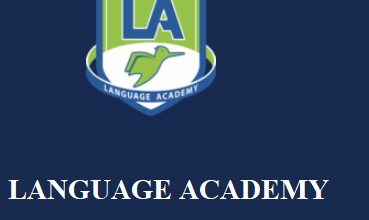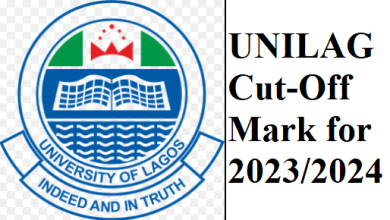
Flight Attendant School
Flight Attendant School
Flight attendant school serve as the fundamental stepping stones for individuals aspiring to pursue a dynamic and rewarding career in the aviation industry. Flight attendant school play a pivotal role in providing comprehensive training programs that equip future flight attendants with the essential skills and knowledge needed to excel in their roles. In this article, we will explore the significance of Flight attendant school and delve into various aspects of Flight attendant school that make them indispensable in shaping successful careers in the airline industry.
The Role of Flight Attendants
Flight attendants assume a multifaceted role as the frontline representatives of an airline. They are entrusted with the responsibility of ensuring the safety, security, and comfort of passengers throughout their journey. Beyond the glamorous image associated with their profession, flight attendants play a vital role in maintaining a smooth and enjoyable travel experience for everyone on board. They serve as the primary point of contact for passengers, offering assistance, information, and support during flights. Additionally, flight attendants are trained to handle emergencies, making them the first line of defense in ensuring passenger safety.
Choosing the Right Flight Attendant School
Selecting the most suitable flight attendant school is a critical decision for aspiring individuals. Several factors need to be considered to ensure a well-rounded education and the best possible start to their career. Accreditation and certification hold paramount importance, as they validate the quality and credibility of the school’s training programs. Recognized institutions that meet industry standards equip students with the necessary skills and provide a solid foundation for their future endeavors.
Reputation and track record are also crucial factors to assess when choosing a flight attendant school. Researching the Flight attendant school history, the success stories of its alumni, and testimonials from former students can offer insights into the institution’s ability to deliver quality education and produce competent professionals. It is advisable to seek schools with a strong reputation within the aviation industry, as they often have established relationships with airlines, facilitating better job placement opportunities.
Examining the curriculum and training methods offered by different flight attendant schools is vital to finding a program that aligns with an individual’s career goals and learning style. A comprehensive curriculum should cover essential subjects such as aviation terminology, safety procedures, emergency protocols, and customer service techniques. A combination of theoretical knowledge and practical training ensures that students are well-prepared to face the challenges and demands of the profession.
Conducting thorough research is crucial in making an informed decision. Online resources, including official websites, industry forums, and review platforms, can provide valuable information about flight attendant schools. It is also advisable to visit schools in person and attend information sessions to get a firsthand experience of the institution’s facilities, meet instructors, and interact with current students. This direct engagement allows aspiring flight attendants to gain deeper insights into the school’s culture, teaching methods, and overall atmosphere, aiding in the decision-making process.
The Curriculum and Training Process
Flight attendant training programs are designed to provide a comprehensive learning experience, encompassing both classroom instruction and hands-on training. The curriculum is thoughtfully crafted to cover various aspects of the profession, ensuring that students develop the necessary skills and knowledge to excel in their roles.
Classroom instruction forms the foundation of flight attendant training. Students delve into the world of aviation, learning essential terminology and concepts that are integral to effective communication within the industry. Familiarizing themselves with aviation jargon and understanding the technical aspects of air travel equips aspiring flight attendants with the ability to navigate their responsibilities with confidence and precision.
Safety procedures and emergency protocols constitute a significant portion of the curriculum. Flight attendants are trained extensively in handling various emergency scenarios, such as evacuations, medical emergencies, and security threats. They learn how to assess and respond swiftly to challenging situations, ensuring the safety and well-being of passengers on board. Mastery of safety procedures, including the operation of emergency equipment and the execution of evacuation plans, is of utmost importance in this profession.
Customer service training is another integral part of the flight attendant school curriculum. Flight attendants are taught effective communication techniques, conflict resolution skills, and the art of providing exceptional service to passengers. They learn how to handle diverse customer needs, anticipate potential issues, and ensure a comfortable and enjoyable travel experience for all passengers.
Hands-on training is a crucial component of flight attendant programs, providing students with practical experience to reinforce their theoretical knowledge. Mock evacuations and emergency simulations simulate real-life scenarios, allowing students to practice emergency protocols and evacuation procedures in a controlled environment. These simulations help build confidence and quick thinking, enabling flight attendants to respond effectively in high-pressure situations.
In-flight service practice enables students to gain firsthand experience in delivering hospitality services during flights. From meal service to handling passenger requests, aspiring flight attendants develop the necessary skills to provide exceptional in-flight experiences. They learn to anticipate passenger needs, handle challenging situations diplomatically, and ensure passenger satisfaction throughout the journey.
First aid and CPR training is an essential component of flight attendant programs. Students are equipped with the knowledge and skills required to provide immediate medical assistance when necessary. Learning life-saving techniques, such as cardiopulmonary resuscitation (CPR) and basic first aid, ensures that flight attendants can respond effectively to medical emergencies that may occur during flights.
Gaining Practical Experience
Flight attendant school often offer internship opportunities that allow students to gain practical experience in a real-world setting. Internships provide invaluable exposure to the daily responsibilities and challenges faced by flight attendants. Working alongside experienced professionals, students have the opportunity to observe and learn from seasoned flight attendants, honing their skills and acquiring practical insights into the profession.
On-the-job training is another avenue through which aspiring flight attendants gain practical experience. Airlines often provide comprehensive training programs for newly recruited flight attendants, allowing them to apply their classroom knowledge in real-life situations. During this training period, they receive guidance and mentoring from senior flight attendants, who share their expertise and provide constructive feedback. On-the-job training offers a seamless transition from the classroom to the actual work environment, ensuring that flight attendants are well-prepared to handle the challenges of their role.
Continuous learning and improvement are vital in the flight attendant profession. As the aviation industry evolves, flight attendants need to stay updated with the latest trends, regulations, and advancements. Many flight attendant school offer opportunities for advanced training and specialized courses, flight attendant school allow professionals to expand their skill sets and stay competitive in the job market. By actively seeking out continuous education and professional development, flight attendants can enhance their career prospects and open doors to new opportunities.
Certification and Licensing
Certification and licensing requirements for flight attendants vary depending on the country and regulatory authorities. In many regions, flight attendants are required to obtain a Cabin Crew Attestation, which is a mandatory certification that validates their completion of the necessary training and competency to work in the aviation industry. This certification ensures that flight attendants are well-versed in safety procedures, emergency protocols, and customer service standards.
Apart from the Cabin Crew Attestation, flight attendants may pursue additional certifications and training programs to further enhance their credentials and skill set. Language proficiency certifications, such as the International English Language Testing System (IELTS) or the Test of English for International Communication (TOEIC), can be advantageous, especially for those aspiring to work for international airlines or on routes that require multilingual proficiency. Specialized courses, such as training on specific aircraft types or advanced emergency medical response, can also provide flight attendants with a competitive edge in the job market.
Job Placement Assistance and Networking
Flight attendant school often provide job placement assistance to their graduates. They maintain strong relationships with airlines and industry contacts, helping students connect with potential employers. From organizing recruitment events to sharing job postings and facilitating interviews, flight attendant school play an active role in supporting their graduates in their job search. They guide resume preparation, and interview skills, and offer valuable advice to help students present themselves effectively to prospective employers.
Networking is a crucial aspect of building a successful career as a flight attendant. Flight attendant school encourage students to network within the industry by attending aviation-related events, joining professional organizations, and actively participating in online forums or social media groups. These networking opportunities allow aspiring flight attendants to connect with industry professionals, share experiences, and gain valuable insights into the profession. Building a strong professional network can lead to mentorship opportunities, referrals for job openings, and increased visibility within the aviation community.
Career Opportunities and Advancement
Flight attendants primarily work for commercial airlines, serving passengers on domestic and international flights. The airline industry offers a wide range of career opportunities for flight attendants, from working on regional flights to serving on long-haul international routes. Flight attendants may have the chance to explore different destinations, experience diverse cultures, and interact with passengers from around the world.
For those seeking international experiences, flight attendant careers offer exciting possibilities. International airlines often provide opportunities for flight attendants to work on long-haul flights, enabling them to travel to various countries and experience different cultures firsthand. These experiences broaden horizons, foster cultural understanding, and create memorable journeys for both flight attendants and passengers.
Moreover, dedicated and experienced flight attendants can progress to senior positions within the airline industry. Airlines typically have hierarchies and promotional pathways that allow flight attendants to advance in their careers. Senior flight attendants may take on supervisory roles, such as leading a team of flight attendants or overseeing in-flight operations. With the right skills, experience, and dedication, flight attendants can also transition into management positions within airlines, where they contribute to decision-making processes and strategic planning.
READ ALSO:
Challenges and Rewards of the Profession
The flight attendant profession presents its fair share of challenges and rewards. Flight attendants must be prepared to handle demanding passengers, navigate challenging situations, and maintain composure during emergencies. Dealing with diverse personalities, resolving conflicts, and managing the expectations of passengers can be demanding. Flight attendants must possess excellent interpersonal skills, empathy, and the ability to remain calm under pressure. It is crucial to approach challenges with professionalism and adaptability, ensuring the well-being and satisfaction of passengers.
However, the rewards of the profession are equally compelling. The opportunity to travel the world is undoubtedly one of the most enticing aspects of being a flight attendant. Exploring new destinations, experiencing different cultures, and witnessing breathtaking sights are perks that few other professions can offer. Flight attendants often enjoy discounted or complimentary travel benefits, allowing them to embark on personal adventures and create lifelong memories.
Another rewarding aspect of being a flight attendant is the chance to build connections and relationships. Working closely with colleagues and sharing unique experiences fosters a sense of camaraderie and creates lifelong friendships. Flight attendants often form a close-knit community, supporting one another through the challenges of the profession and celebrating each other’s successes.
Conclusion
Flight attendant school play a vital role in shaping the future of aviation by providing aspiring individuals with the necessary skills and knowledge to thrive in their careers. Through comprehensive curricula, hands-on training, and job placement assistance, these flight attendant school serve as catalysts for success in the airline industry. If you dream of a profession that combines travel, customer service, and adventure, consider embarking on the exciting journey of becoming a flight attendant. Embrace the opportunities, invest in your education, and prepare to soar to new heights in the world of aviation. Remember, the sky is not the limit, but only the beginning of a remarkable career as a flight attendant.






